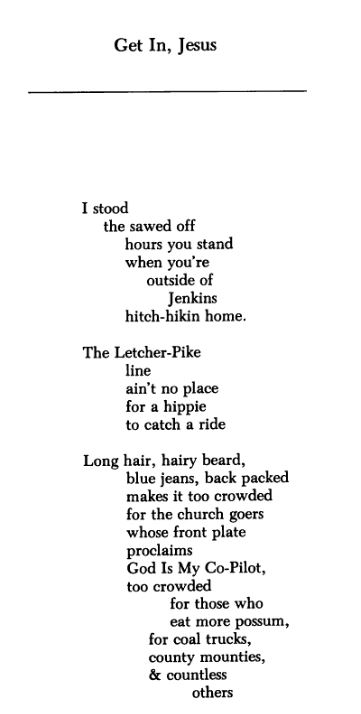This July, 103 writers from across Eastern Kentucky and the country came together at Hindman Settlement School in Knott County for the 42nd Annual Appalachian Writers’ Workshop. Each writer had different levels of experience and interests, but a shared loved for writing about Appalachia.

Brent Hutchinson, Executive Director of Hindman Settlement School and a 2019 Obama Foundation Fellow, said they had so much interest this year, they added another session in order to let a few more people join.
Hindman is well-known for attracting and generating a strong community of writers and artists. Since May Stone and Katherine Pettit established Hindman Settlement School in 1902 as the first rural settlement school, the campus and Knott County has seen a consistent rotation of writers. James Still, a well-known Appalachian author, was associated with Hindman for nearly 70 years and is buried on the Settlement’s campus. Lucy Furman, an accomplished writer before coming to Hindman, published five novels about her years as housemother to Settlement School students, about the school and about the area.
Today, the school provides practical courses and programs, including unique educational services for children with dyslexia and their parents. They also work to preserve and promote the area’s cultural heritage through arts programs such as the Writers Workshop, the Makery, an immersive online writing studio, Common Threads, and more. Hindman has become known for investing in the arts. The Appalachian Artisan Center, which houses the Appalachian School of Luthiery, Culture of Recovery, artist studio spaces and a gift shop selling local artists’ work, sits on Main Street. The Hindman campus of Hazard Community and Technical College is home to the Kentucky School of Craft and Troublesome Creek Stringed Instrument Company.
“More than 100 years of history lives here and you are now a part of that history,” Rebecca Gayle Howell, who is the writer-in-residence at the Settlement School, said during an evening program at the Workshop. “I don’t know of anything else in the American tradition like the Appalachian literary legacy.”
When writers apply for the Writer’s Workshop, they must submit an original manuscript in their chosen genre, whether it be creative nonfiction, novel, short story or poetry. Writers are chosen for the quality of work in order to have an advanced cohort. During the workshop, writers attend immersive workshops during the day, each led by a well-known author. Each evening, there is a shared dinner and an evening program including documentaries and readings.
This year’s Thursday evening program kicked off with Lyrae Van Clief-Stefanon, a poet, author and associate professor of English at Cornell University. Robert Gipe, an author living in Harlan County, followed with a reading from his second novel, Weedeater, published in 2018. Among many other creative projects, Gipe is a producer for Higher Ground, a community theater project based in Harlan County, dramatizing local and regional issues.

A review of Weedeater, by Southern Lit Review, described the novel’s plot, “Back in Kentucky, the Jewell family members continue to live up a holler about as far as you can stick a needle. And some like needles. The plot is loaded with activists, artistic locals, coal miners, multiple do-less folks, day laborers, deaths, betrayals, loss, sadness, love. Folks shoot up. Folks steal. Folks threaten. Folks get whacked. Folks love family. No one wins a ‘get out of jail free’ card or buys Boardwalk. Few battles are won. Like the flying debris and dirt flung by a weed eater, the characters are impossible to ignore.”
Gipe, like many writers at the Workshops over the years, attend as many summers as possible. With a region as complex and unique as Central Appalachia, it is essential for creatives to have a shared space like the Writers Workshop to develop ideas, characters and to discuss emerging trends. Finding ways to write about the region in a nuanced way is no small feat.
Our region’s legacy of art, including its literature, is a tremendous asset as we look to build Appalachia’s New Day.
About: This is story #36 in the Appalachia’s New Day campaign, a new storytelling effort launched in June 2019 by MACED for Eastern Kentucky communities. We can work with you to help identify, shape and amplify stories about businesses, programs and initiatives in your community that are helping build a new economy. Read more stories here. Contact us or sign up here if you would like more details.





